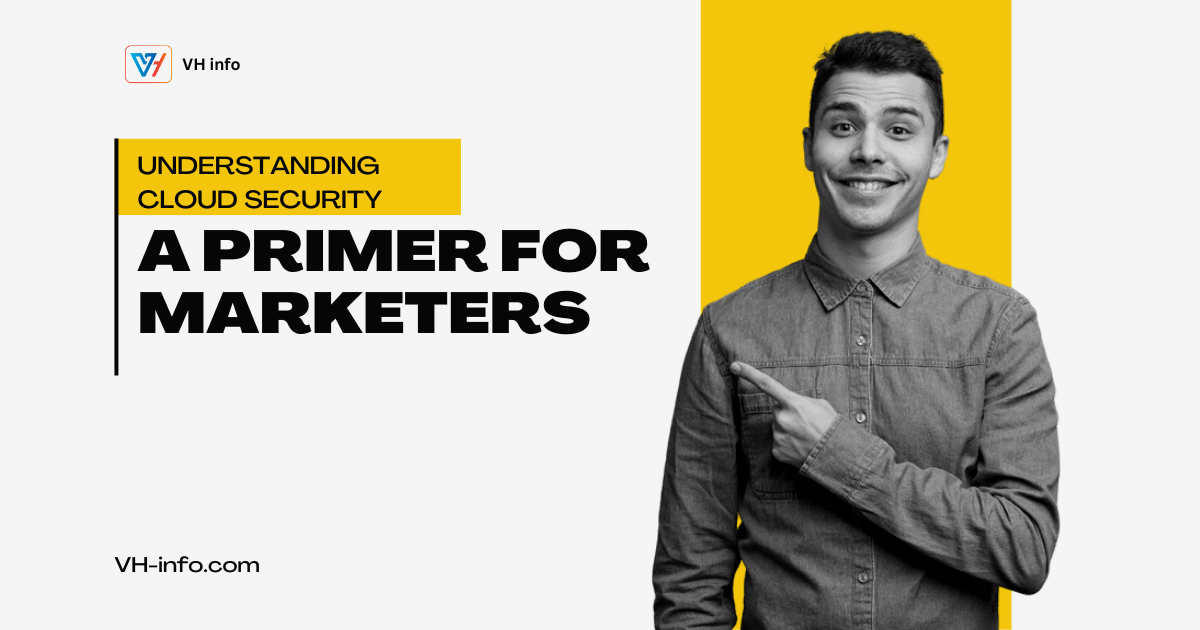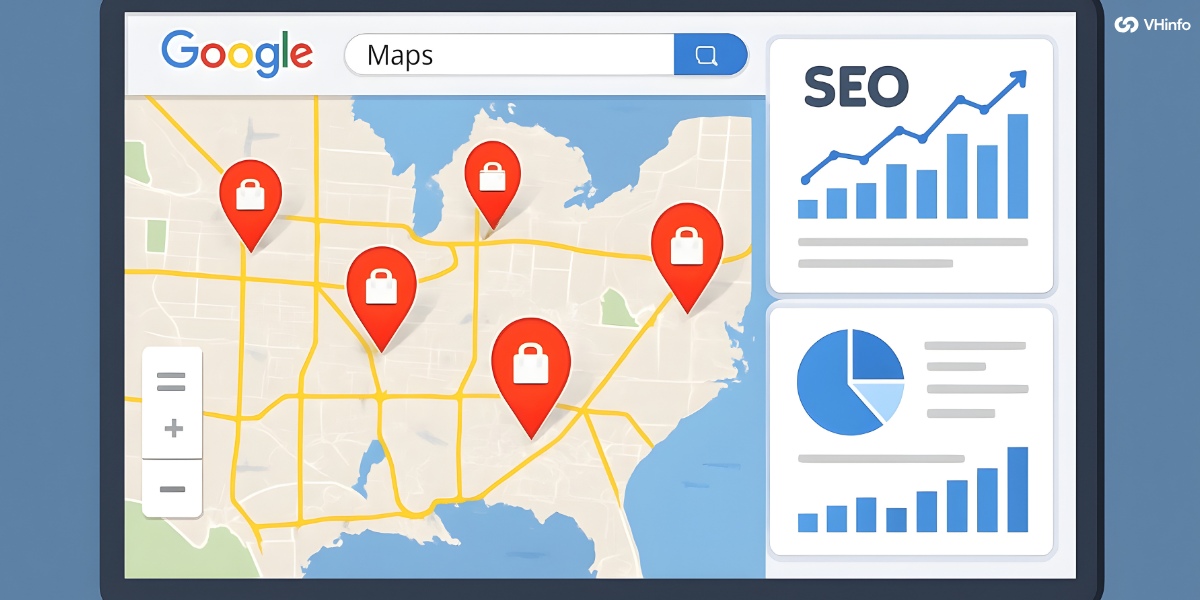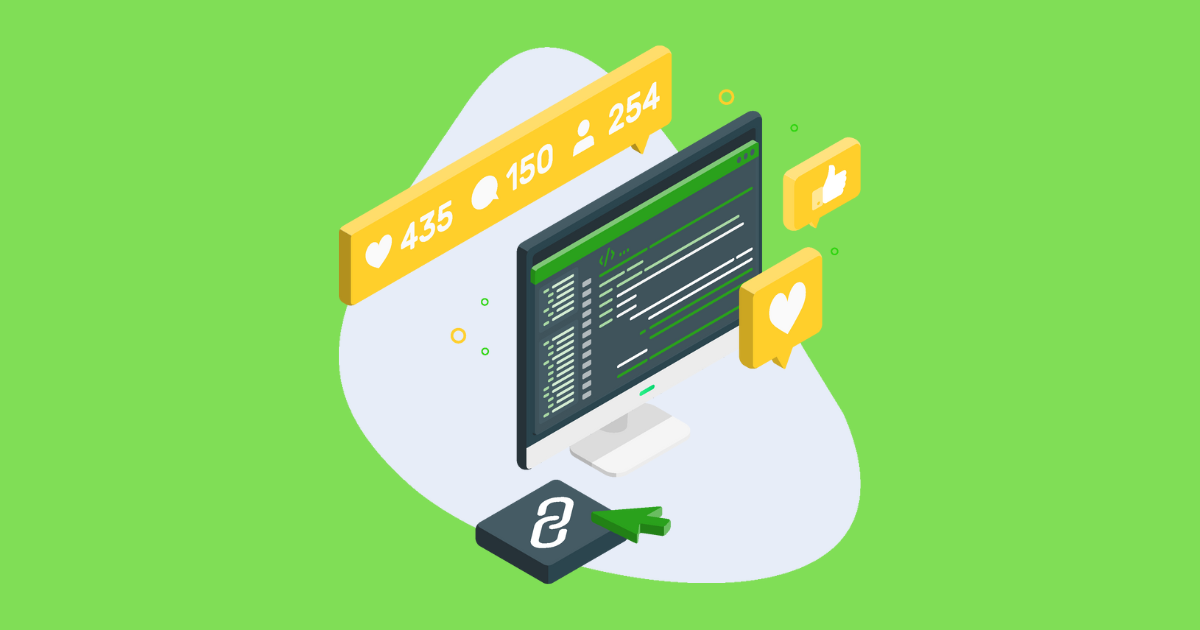Cloud security may sound like a techie’s concern, but it directly impacts marketers too. This is because handling data securely, whether it’s customer insights or ad campaign details, is the best way to keep customer trust intact.
Understanding the basics is necessary irrespective of whether you’re directly responsible for implementing security measures. Cyber threats never sleep, so the last thing you want is to find that weak spots in the cloud systems you use have been targeted.
Knowing what to look out for helps you collaborate with IT teams better and safeguard valuable marketing assets. Stick around to learn how practical strategies keep your campaigns safe without you needing to be a cybersecurity expert.
How Cloud Security Directly Impacts Marketing Campaigns
Marketers rely on cloud platforms for almost everything. From managing email campaigns to running analytics, these tools store sensitive customer data and campaign details. Weak security can disrupt your marketing efforts and erode trust.
Cloud security plays a role in campaigns by:
- Protecting customer information that builds brand loyalty
- Keeping proprietary campaign strategies confidential
- Ensuring compliance with privacy laws like GDPR or CCPA
A breach hurts IT departments and affects you too. It could result in losing access to ad accounts right before a launch, or worse, leaked customer data damaging your reputation.
Securing the cloud keeps campaigns running smoothly while maintaining trust in your brand’s commitment to safety. Understanding this connection lets you proactively safeguard marketing outcomes and client confidence. Plus, enhance your defense against threats by strengthening the DNS layer to keep marketing tools running smoothly. To understand which solution fits best, check out the comparison of Cloudflare vs DNSFilter, where you’ll find insights on performance, filtering accuracy, and ease of use.
The Most Common Risks Marketers Face in the Cloud
Cloud tools simplify marketing, but they come with risks. Being aware of these helps you protect your work and your reputation.
Common risks include:
- Unauthorized access through weak passwords or stolen credentials
- Data breaches exposing customer information or campaign strategies
- Misconfigured settings leaving cloud storage open to public access
- Malware attacks targeting cloud applications you rely on daily
Marketers often use third-party apps that connect to cloud platforms. Another key risk is unauthorized access to privileged accounts—accounts with higher levels of control over cloud systems and marketing tools. Privileged Access Security (PAS) helps ensure that only the right people have access to critical data, reducing the risk of breaches and insider threats. If not vetted carefully, these integrations can create additional vulnerabilities. Even something as simple as shared logins among team members can lead to security gaps. To better manage these challenges, ITSM software can help standardize processes for access control, incident management, and third-party integrations, reducing the chances of misconfigurations or security lapses.
Familiarizing yourself with these risks means recognizing potential threats before they impact your campaigns or clients’ trust. When you’re mindful of what could go wrong, working alongside IT teams for a secure system becomes easier while continuing creative workflows uninterrupted.
Practical Tips for Securing Your Marketing Data in the Cloud
Protecting your marketing data doesn’t require deep technical knowledge. Simple, consistent actions help prevent security problems.
Some effective tips are:
- Enabling two-factor authentication on all cloud platforms
- Regularly updating passwords and avoiding shared login credentials
- Reviewing access permissions to ensure only necessary users have rights
- Using encrypted tools for storing sensitive customer information
Also, by using VPN for PC systems you can add another layer of protection when accessing cloud resources remotely. This reduces the risk of exposing data over unsecured networks.
Frequent audits of connected third-party apps also help catch vulnerabilities early. Staying proactive with these steps helps keep your marketing operations secure without adding unnecessary complexity to daily tasks. Safeguarding data ensures smoother collaboration between teams and greater trust from clients or customers who rely on you to handle their details responsibly.
Choosing the Right Tools to Strengthen Your Security Posture
Not all cloud tools offer equal protection. Picking secure platforms ensures better safeguarding of your marketing efforts and data.
Look for tools with features including:
- Built-in encryption for storing and transferring data
- Regular security updates to address vulnerabilities promptly
- Detailed user permission settings for controlled access levels
- Compatibility with multi-factor authentication methods
Activity monitoring tools also help track suspicious behaviours, such as unexpected logins or unauthorized downloads. Using third party hybrid cloud monitoring tools to track performance alongside security is also advised. Meanwhile, platforms that comply with major privacy regulations like GDPR provide added assurance they handle sensitive information responsibly.
While flashy features might be tempting, prioritize tools designed around robust security practices. Choosing carefully vetted platforms lets you reduce risks without compromising functionality in daily operations.
Collaboration Between IT and Marketing Teams for Better Protection
Marketing and IT teams share responsibility for cloud security. Working together creates a stronger defense against potential risks.
Effective collaboration includes:
- Communicating regularly about the tools marketers use in their workflows
- Training marketers on recognizing phishing attempts or weak password practices
- Involving IT when connecting third-party apps to cloud platforms
- Setting up clear protocols for responding to security breaches
IT teams have technical expertise, while marketers understand the specific needs of their campaigns. Aligning these perspectives ensures tools are both functional and secure.
Having open communication prevents misunderstandings, like configuring settings improperly or skipping updates that patch vulnerabilities. Collaborative efforts help protect not just sensitive data but also campaign success by reducing downtime caused by preventable issues. Security Awareness Training also plays a key role in helping teams stay vigilant and informed. Together, these teams create a balanced approach to keeping marketing activities secure without adding unnecessary hurdles.
Considering Regulations Relevant to Marketers Using Cloud Platforms
Compliance with privacy laws is more than a legal obligation. It protects customer trust and keeps marketing operations smooth. Marketers must stay aware of relevant regulations when using cloud platforms.
Key areas to consider include:
- Ensuring data collection aligns with laws like GDPR or CCPA
- Verifying third-party apps follow proper compliance standards
- Avoiding the storage of sensitive information in unsecured systems
- Being transparent about how customer data is used and shared
Non-compliance can lead to fines, reputational damage, or disrupted campaigns. Working with IT teams helps ensure your tools meet necessary standards while maintaining functionality. Implementing solutions that highlight server side tracking benefits can also strengthen compliance by reducing reliance on client-side scripts and offering more secure, privacy-conscious data collection methods.
Cloud providers often share responsibility for meeting these requirements, but marketers remain accountable for how they handle data. Staying informed allows you to proactively align processes without waiting for issues or audits to arise unexpectedly within your workflows.
Real-World Examples of Cybersecurity Breaches Impacting Marketing
Cyber breaches can severely affect marketing operations and brand trust. Learning from real incidents highlights the importance of strong security practices.
Notable examples include:
- The Adobe breach in 2013 exposed data of 38 million users, including encrypted credit card details, damaging customer trust in the brand
- Canva faced a data breach in 2019 where hackers accessed account details for over 137 million users, leading to immediate reputational harm despite their quick response
- Insecure cloud storage mismanagement led to sensitive Facebook user records being publicly accessible in 2019 through third-party apps
These cases show how vulnerabilities affect not only IT but also marketing teams that rely on these platforms for campaign management or customer insights.
Implementing basic measures like regular audits and limiting access helps prevent similar outcomes. Securing your tools keeps your campaigns running smoothly and customers’ confidence intact.
The Role of Artificial Intelligence in Cloud Security for Marketers
Artificial intelligence (AI) benefits the businesses that implement it, and cloud security is a great fit for this tech. Its ability to analyze data quickly and identify threats helps marketers protect their operations more effectively.
AI enhances cloud security by:
- Detecting unusual login patterns that may signal unauthorized access attempts
- Automating threat detection to respond faster than manual monitoring systems
- Analyzing user behavior to identify risky activities within marketing platforms
- Predicting vulnerabilities before they are exploited based on historical trends
For example, AI-powered tools like Darktrace have successfully identified early-stage cyberattacks using machine learning, allowing companies time to mitigate damage. Platforms like Microsoft Azure use AI to enforce stricter compliance with privacy regulations automatically. Platforms like Microsoft Azure use AI to enforce stricter compliance with privacy regulations automatically. If you’re concerned about digital security, it’s also important to know if your phone is being tracked and take necessary precautions.
Incorporating these technologies into your workflow doesn’t require deep technical knowledge. Leveraging built-in AI features on trusted platforms strengthens your overall security posture while keeping marketing operations smooth and efficient.
Educating Your Team on the Basics of Cyber Hygiene
A well-informed team is the antidote to security threats. Educating marketers on cyber hygiene ensures they can avoid common pitfalls and help maintain secure operations.
Key topics to cover include:
- Recognizing phishing emails that target login credentials or sensitive data
- Using strong, unique passwords for each platform to minimize risks from breaches
- Avoiding public Wi-Fi when accessing cloud platforms without a VPN in place
- Logging out of accounts after use, especially on shared devices
Real-world training exercises, like simulated phishing campaigns, reinforce lessons and identify areas needing improvement. Regular refresher courses also keep teams up-to-date with evolving threats. As the cost of coping with cybercrime is expected to top $13 trillion by 2028, it really is an arms race you cannot afford to ignore.
Finally, creating awareness among all users limits vulnerabilities caused by human error. Simple practices go a long way in keeping marketing tools and customer data safe while fostering accountability across your team members’ daily activities.
The Bottom Line
In short, cloud security directly impacts the tools, data, and strategies marketers rely on daily. Staying informed about risks helps you safeguard both your campaigns and customer trust.
Simple steps like enabling two-factor authentication or using encrypted platforms reduce vulnerabilities without requiring technical expertise. Collaboration with IT teams ensures marketing workflows stay functional yet secure.
Moreover, prioritizing education, compliance, and the right technologies means marketers can protect their operations against growing threats. A proactive approach keeps cloud systems reliable, allowing marketers to focus on creating impactful campaigns with peace of mind for their team and audience.



